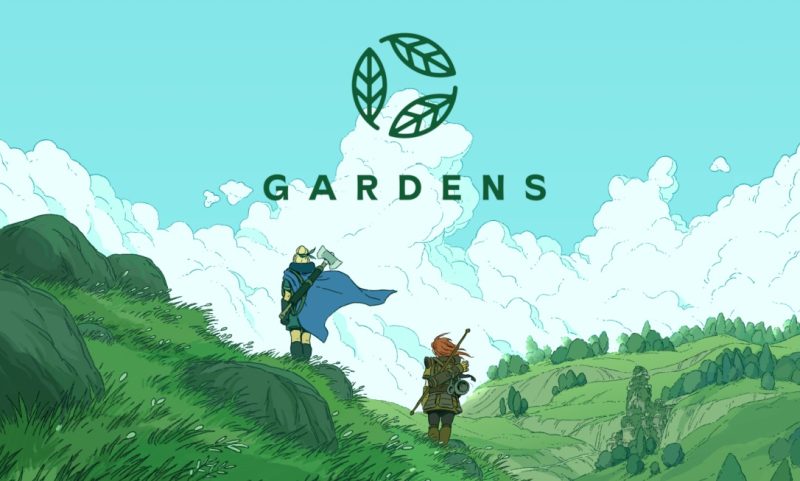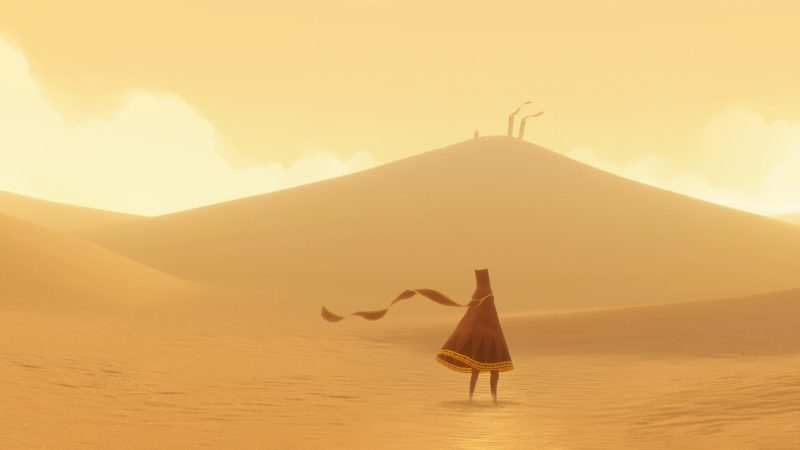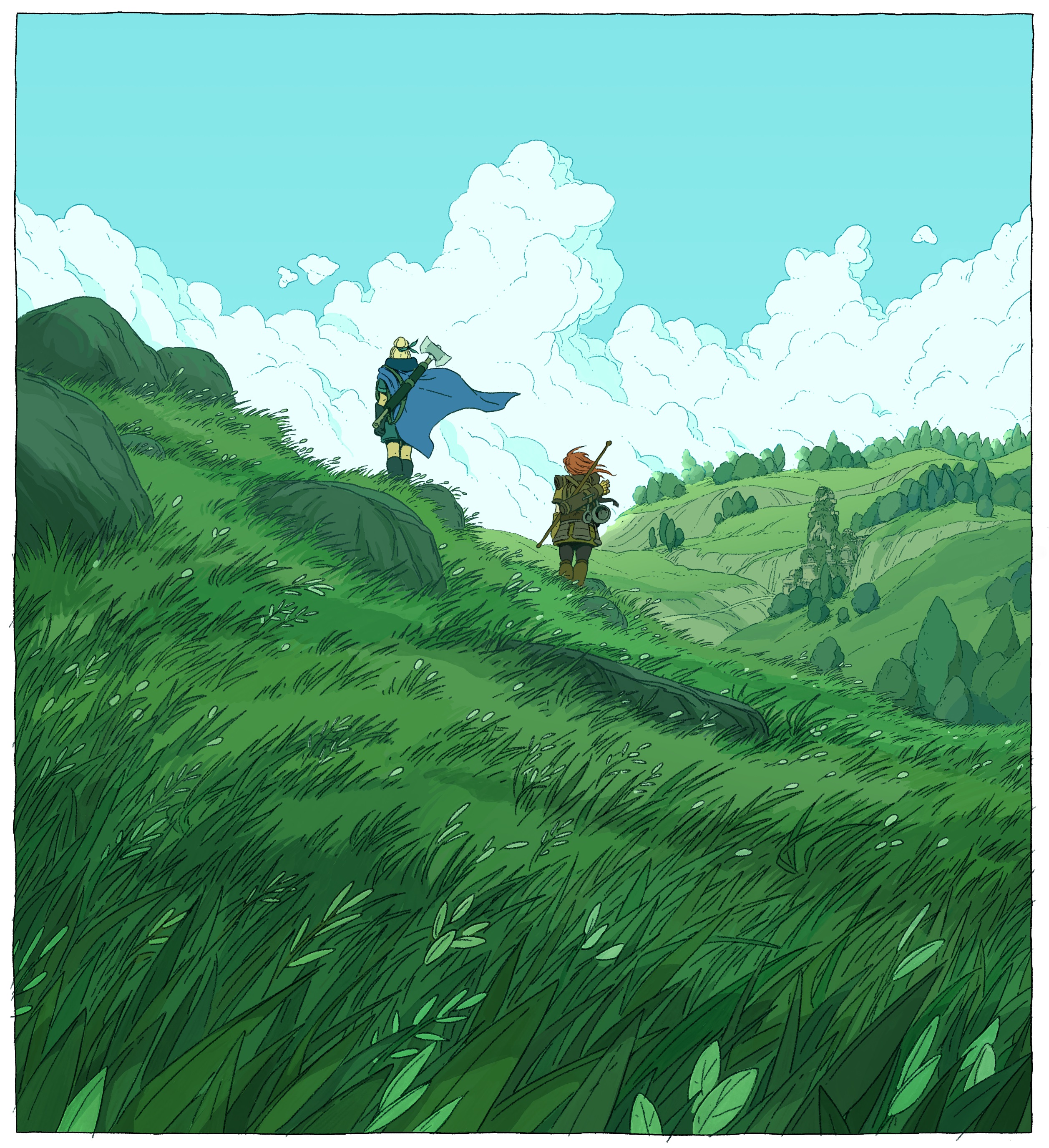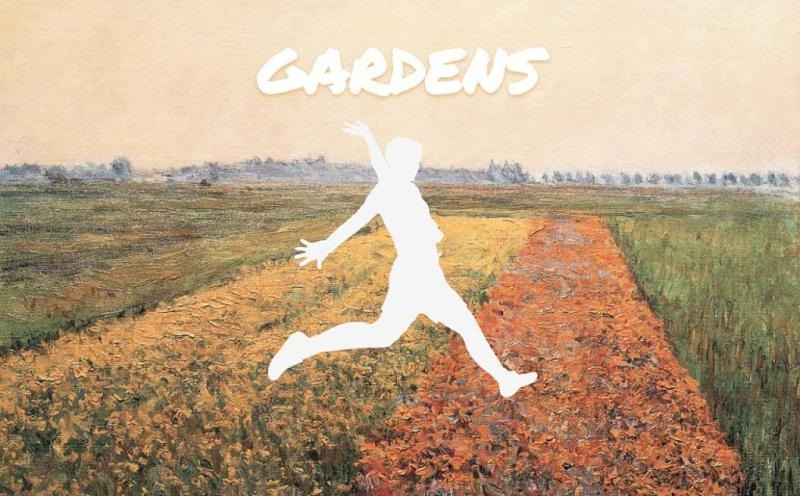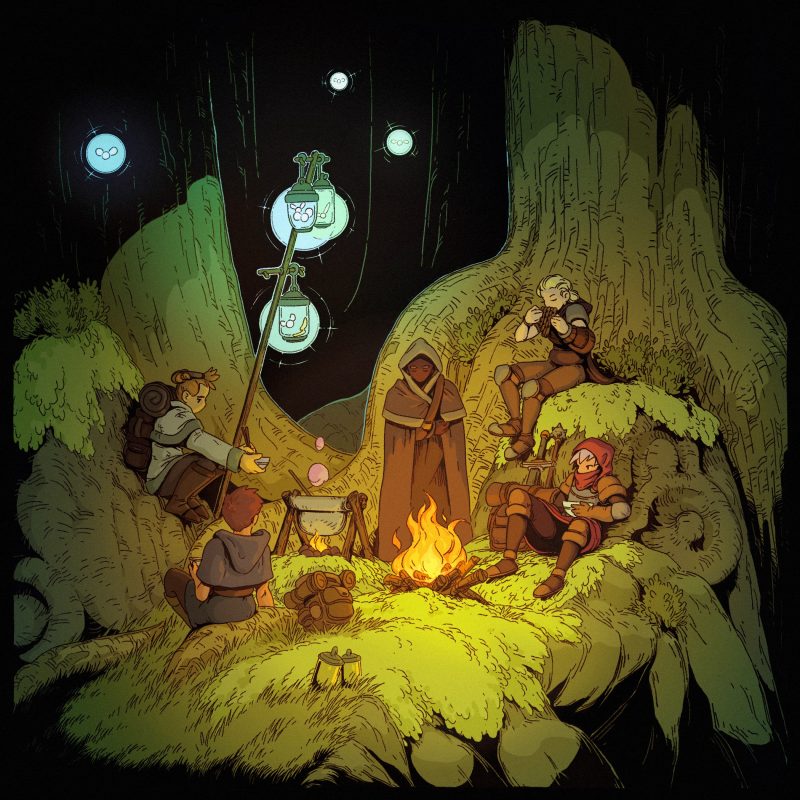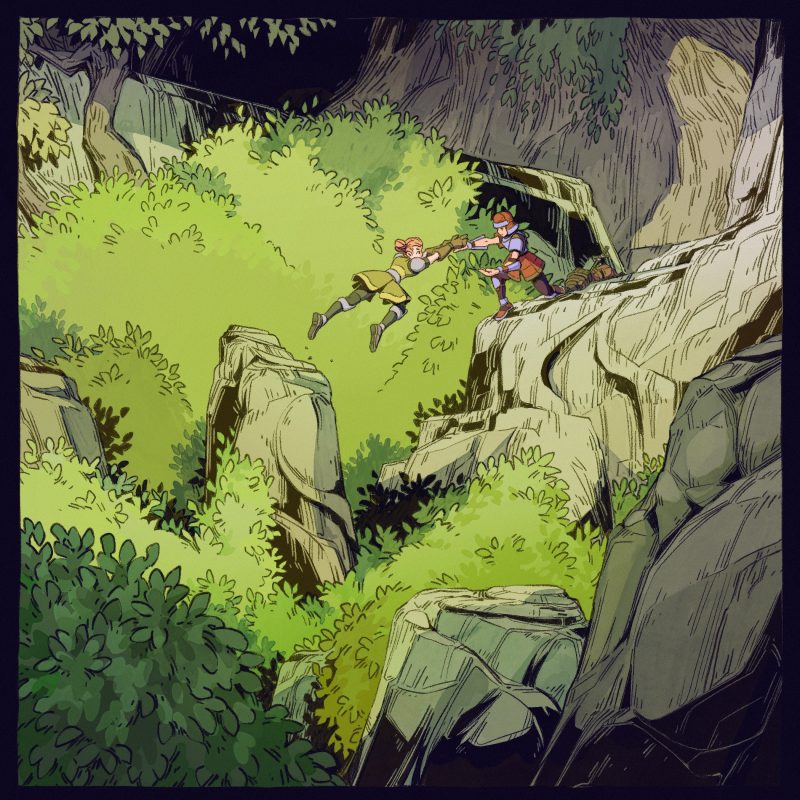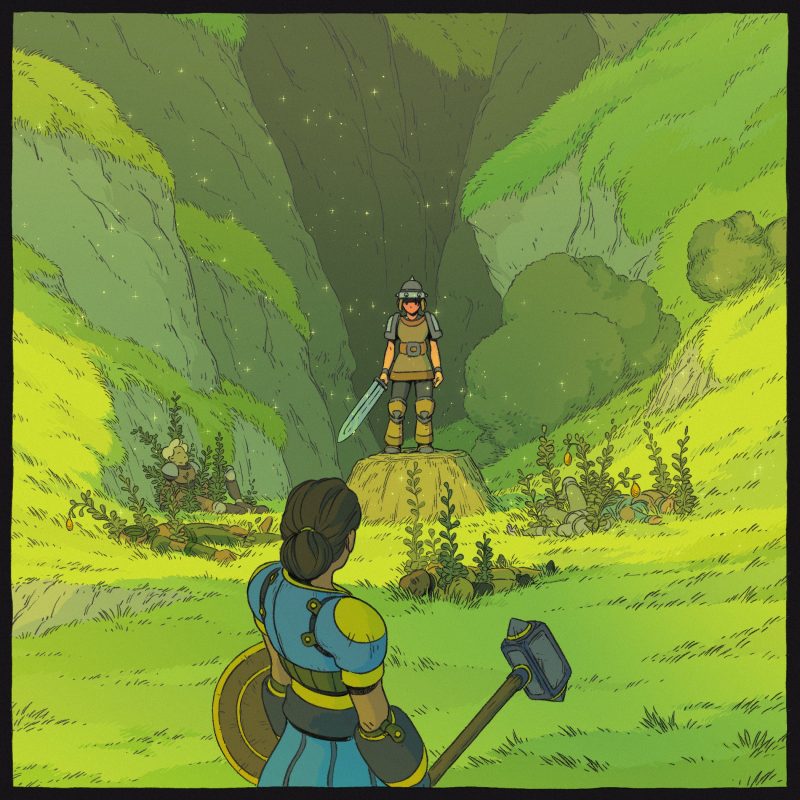There’s something rotten in the games industry.
It’s arguably the most exciting time to be a gamer, no matter where you play, and each year – this current one, particularly – we can expect great games from incredible developers.
Those same incredible developers though are also put through seemingly endless crunch periods, pushed to and beyond the point of burnout, and in the case for some developers, constantly facing harassment from their co-workers and higher-ups.
Toxic workplaces exist in far too many of our favourite studios, and they’ve become a focal point for an industry that desperately needs to change.
Studios like the newly announced Gardens, however, are looking to lead by example, to make games that are both ambitious while allowing their developers to live full lives.
I got to ask brothers Chris and Stephen Bell, two of Gardens co-founders who were also the minds behind the likes of Journey, What Remains Of Edith Finch, Sky, and Blaseball – a few questions about their new studio, and what they hope to create.
Interview With Gardens Co-Founders, Chris Bell & Stephen Bell – Ambitious Games The Sustainable, Healthy Way
Laying The Soil
New game studios, like actual gardens, don’t just crop up overnight. There’s personal preparation you need to do before embarking on the commitment, and in the case of game development, a lot of learning to do first.
For Chris Bell, that learning came from his time spent on his biggest games yet.
“I was a designer/producer on Journey, lead designer of What Remains Of Edith Finch, and lead designer again on Sky: Children Of The Light. Developing those games, I learned how to become a better game designer, how to lead and motivate a team, how to cultivate player communities, and how to grow and manage a studio.”
Related News – Interview With Matt Bettleman, Lead Designer On Puzzle Bobble 3D: Vacation Odyssey
So when it came time to plant the foundation for Gardens, along with close friend Lexie Dostal, the timing worked perfectly.
“Over the years we’d regularly talk about the game concepts we’d love to make and play (most notably online games), and the kind of studio and culture we’d want to grow them at.”
“After shipping Sky, I took considerable time away from work, both to recover from an intense development period and game launch, and to figure out what my next steps should be.”
“It’s during this time that Lexie, Stephen and I came together to form Gardens.”
Games that can build connections between players have been the focus of Chris’ career. He’s spoken time and again about a “developing for friendships” approach over one that traditionally favours player enjoyment above all else.
Gardens in this way feels more like the inevitable next step for each of the founders, who’ve never stopped dreaming about the kind of multiplayer experience they want to make.
“There are multiplayer game ideas that we’ve long wanted to explore and play” Chris said.
“Ideas that build upon our previous work, as well as new ones that we haven’t really seen before. Ambitious online games with the potential to surprise and inspire players, foster lasting friendships, and cultivate vibrant player communities.”
“And so with Gardens, we sought to create a studio that brought together talented and caring developers to make these kinds of games in a sustainable and healthy way.”
“The kind that would enable us and anyone who joins to live full, balanced lives while continuing to create ambitious games alongside people we care about and admire, and where we share in our success together.”
Related News – Interview With Tomas Sala, Creator Of The Falconeer
That might as well be the mission statement for Gardens. Bringing the focus of development back onto the people making the games as equally as the game itself.
Ensuring that the hardworking developers who create the worlds we love to explore are able to have their lives, and reject the idea that game development has to include overly demanding and harsh hours.
It’s clearly resonating with other developers, like Sarah Sands who recently joined the studio.
“There were so many things about the culture that made me want to join the studio. The first time I met with Stephen and Chris there were so kind and passionate about the game they were making. I’m excited about the idea of making the game I’ve always wanted to play in a sustainable way that values the health and happiness of the team.”
That same resonance is also felt by investors, who all seem to understand what Chris, Stephen and Lexie are trying to build with Gardens.
“The current strength of the market has helped tremendously. We were fortunate to raise $4.5M in an oversubscribed seed round back in July, backed by some incredible investors and partners who understand our vision, and who provide us with the knowledge and resources to grow and succeed.”
A Growth Mindset
A strong start for sure, but it’s clear with both Chris and Stephen that their intentions couldn’t be more pure. They’ve been through the grinder and know what it’s like to be on manure duty, for lack of better garden-based phrasing.
“We named ourselves Gardens after the kinds of games we make and the way we build them. We’ve all experienced the negative effects of crunch culture and other forms of abuse that are so rampant in the industry. We’ve been burnt out, had our health and relationships suffer.”
“Some of us even left the industry entirely for a time. We refuse to believe that making great games means grinding people up. We believe crunch actually produces worse work. And so when we came together to create Gardens, we knew we wanted to try our hardest to do things differently.”
Stamping out the issues that plague the rest of the industry may sound simple enough, but like anything worth doing it takes effort and commitment. Garden’s core mindset of ambitious games created in healthy environments however is a perfect starting point, and it shows just how deep an understanding the founders have about how to do things differently.
“We share a responsibility to care for one another. We are committed to sustainable, collective growth”, said Stephen.
“That means providing everything from competitive pay and pay equity across departments, to stock options and 401ks, to robust health benefits, to enabling our teammates to live where they wish and build the lives we want, and practicing healthy work hours.”
That last part, like everything else is no joke. Gardens has 35 hour work weeks, unlimited paid time off for employees and they encourage everyone to take at least one week off per quarter.
“It’s a group effort, and one that has enabled us to attract an incredible team of talented and caring individuals from both AAA and indie. Developers from games like Skyrim, Spider-Man, Fallout, Ashen, and more.”
This mindset applies to how they structure making their games, but also to the games themselves.
Firstly it should be clear that Gardens focus will be multiplayer titles, and for good reason.
It wants to create games that can evolve and empower players, to name two of the points Stephen listed to me as Gardens defining principles for their projects.
“We named ourselves Gardens after the games we grow together – lush, living online worlds that bring players together to cultivate lasting friendships and share surprising and novel multiplayer experiences. Worlds that thrive thanks to the care put in by their communities.”
“We believe the future of online play is in interconnected gardens. Spaces that grow and evolve over time, that leverage combinatorial objects, mechanics, and abilities to create a wealth of play experiences from a limited set of tools.”
“Spaces that empower player expression, thrive when tended by their communities, motivate players to form long-lasting relationships, and where we can come together to play, compete, create, and host events for our communities.”
“Our role is to grow and tend these virtual worlds so they continue to bloom and invite life to rush in and fill the space, as we continue to offer new, surprising and playful experiences to our players far into the future, in turn enabling us to continue doing what we love – creating highly-detailed, ambitious games in a sustainable, healthy way.”
The First Seed
Speaking of games from Gardens, the team is currently already underway on its debut title. This unannounced project will be the studio’s main focus as part of their plan to grow and expand.
“Our goal is first for this game to become the financial spine of the company -” said Chris. “One that we can continue to support and develop, and which can provide a strong source of reliable ongoing revenue for the company for years to come.”
“This will enable us to add additional teams and create more games alongside it in the future, eventually becoming a multi-project studio that will give our teammates more opportunities to explore new ideas, master new skills, and grow into leadership or directorial roles.”
Related News – Interview With Naoki Yoshida, Director Of Final Fantasy XIV
In regards to details on the project, those are understandably not all ready to be revealed. Chris did however share a few key points for what to expect.
“Our upcoming flagship game is a shared fantasy adventure inspired by some of our favourite memories playing online games, particularly moments share with strangers.”
“Players will find themselves crossing paths in a shapeshifting, unpredictable wilderness filled with mystery and magic, feature a timeless visual direction and tactile multiplayer play.”
“It’s the world we want to adventure in every day, and we’re designing it to grow modularly over time, continuing to evolve long after its initial release.”
“The art on our website gives some hints about what exactly we’re creating together.”
Another reason why the timing of Gardens coming together feels so perfect is the current technology developers have to work with, compared to the days of say the PS3.
Even just with controllers like the DualSense, there are more options for developers to play with, and further evolve the nuances of the players experience.
“We care a lot about how our games feel to play and control, and are particularly fond of controller-based games” said Chris.
“We love how a joystick or trigger can map to the virtual world and the avatars that players embody, and how the physical resistance can be leveraged to add a sense of tangible and emotional weight to the play experience.”
“Fumito Ueda is a huge source of inspiration for us, and a designer who has mastered this well. Take Ico, for example. To hold hands with Yorda, players must continue to hold down the trigger.”
“The physical action of squeezing the controller’s trigger mirrors the act of holding hands, and it’s this tangible mirroring that heightens the player’s emotional connection with Yorda and immerses them deeper into the experience.”
“With this in mind, we’re particularly excited about how we can utilize the PS5 controllers’ haptic trigger technology to heighten our game’s emotional impact and better surprise, delight, and immerse our players. Or how we can use their IMU technology to create novel moments or give our players more expressive tools.”
Anyone who has played a good multiplayer game understands the impact they can have. The last two years have thrown the whole world into disorder to say the least, and games that can connect us are more in demand than ever out of a need to build relationships with each other.
“We definitely feel a responsibility to create games that can bring people together and cultivate friendships,” said Stephen. “Games that try to be respectful and worthy of our players’ time.”
“I helped create Blaseball while in lockdown, and seeing the communities that sprang up there, seeing people inspired to make art and music and stories and games because of this silly baseball sim we created, that has been a source of tremendous joy during an incredibly difficult time.”
Narrative Ecologies & Meaningful Communication
The miraculous moments of connection anyone who has played a multiplayer title for any amount of time is part of what makes them so special, though it’s not exactly easy for developers to create those opportunities.
As narrative designer for Gardens, Stephen’s approach towards a meaningful narrative then naturally see’s him focusing more on creating connection opportunities layered into each part of the game.
“We talk a lot about creating emergent narrative ecologies that can foster surprsing and dramatic multiplayer contexts and leave room for players to author their own stories.”
“Narrative design is about creating a space for the player to engage with the game’s core mechanic and have the world react in a way that feels interesting and absorbing, but which also creates a sense of agency.”
“It’s about amplifying the possibility space, creating the preconditions for emergent narratives to arise and deepen the overarching story. Tone, mood, and clear intent make up those preconditions.”
“As a narrative designer, my primary intent is always to do what I can to get out of the players’ way, to provide the right tone, mood, and just enough narrative for players to feel like they’re authoring their own stories.”
“The last thing I want to do is force something that disrupts that connection between the players, the game world, and the central mechanic.”
“I am always attempting, as a friend once said, to wear the mask of the player, to hold hands with the player in the storytelling. To encourage them to keep digging.”
Related News – Interview With Todd Fennell, The Voice Of Taro From Kena: Bridge Of Spirits
That focus on immersion also ties into how communication works in this unannounced title, and in how Chris likes to design games.
“We’re continuing to explore new forms of playful nonverbal communication, some of which we haven’t really seen before in games.”
“What we love about nonverbal communication is how it motivates players to express themselves through play itself, creating an environment where all players share the same communicative tools, and where they don’t need to speak the same verbal language in order to play together, connect, or become friends.”
How players communicate in a game can sometimes be the make or break aspect, if the gameplay really requires strong communication. There’s a greater meaningfulness your communication can have though, when it is unrestricted by traditional linguistic rules.
“In the previous game I helped design, players first befriend each other nonverbally. By continuing to play and invest in each other, they earn new share affordances – the ability to hold hands, the ability to fast-travel toward each other, and eventually, the ability to chat through text.”
“Through this approach, coupled with other mechanics and systems, we’ve found that players were more likely to speak positively and respectfully to each other when text and speech were finally introduced, which is something we certainly think about as we develop our first game, especially one that aspires to cultivate a vibrant and positive player community.”
Everything about Gardens methodology couldn’t be more focused in on creating deep, emotionally connected moments for players to experience – and that’s what makes this new studio so exciting.
Designing For Friendship, And Beyond
While generations older than I may look back on times of turmoil and strife in the world around them as the most divided they’ve seen, it won’t be surprising when years later these last few years alone are brought up in the same tone.
We know though, that living without meaningful connection can be demolishing to our lives. Video games, whether they were made to try and connect players or not were many people’s saving grace during the pandemic, and it was another clear showcase of the power gaming has.
Gardens is a studio, not just one game, that is built around a core philosophy of connecting players in the same way, and even on deeper levels.
“It’s about designing to connect people to bridge language and cultural barriers through play, to enable player expression, and to create shared experiences where players can learn from and be inspired by one another.”
“It’s our hope that we can grow a world that engages and surprises players while inspiring them to be considerate, both to the virtual world they inhabit and to other players crossing their path.”
Even without a game released, without any footage, only with just some art and these generous answers, Gardens is the studio I’m most looking forward to a release from.
I want games from developers who are paid more to work less, who bring their full creative ability to their work because they can, and they’re not being overworked and under-valued.
Gardens is the embodiment of that kind of studio, with some of the industries best storytellers and designers already in their roster. That alone is enough to make me excited, but not so much as what Sarah Sands, Garden’s developer hopes for their game.
“I hope the game we make has a cat wizard.”
Me too Sarah, me too.
Thank you to Chris and Stephen for your generous answers, and to all those who played a part in making this piece possible.
